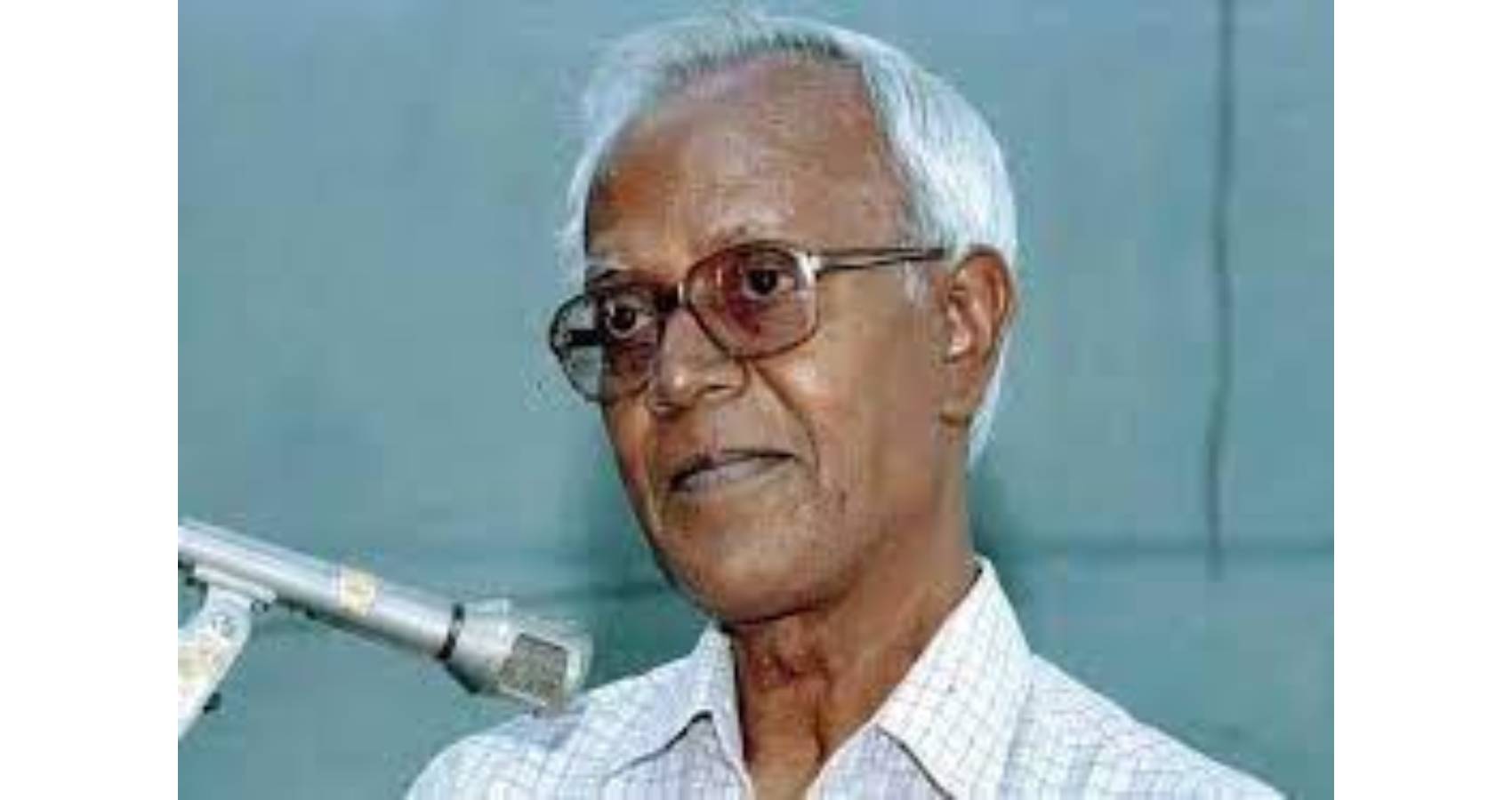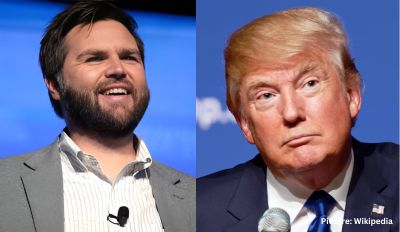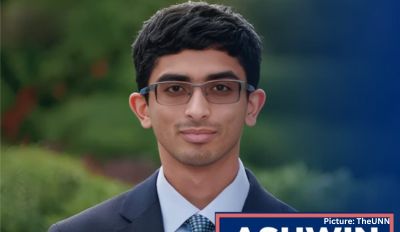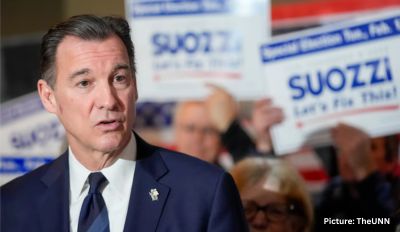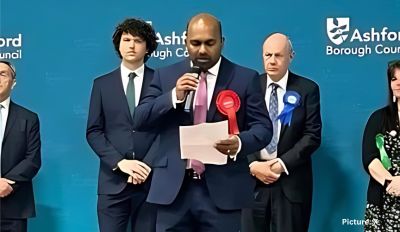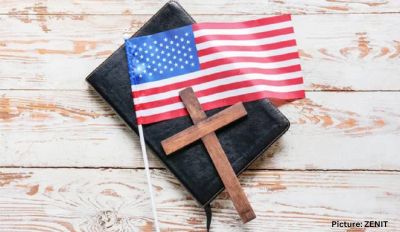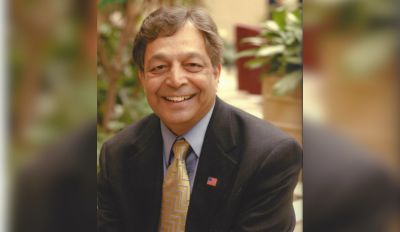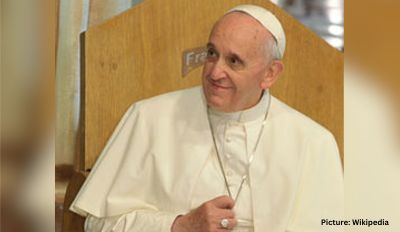The body of 84-year-old Indian Jesuit priest Stan Swamy, who died under detention, was cremated on July 6 after a court asked Jesuit officials to follow prison rules. Father Stan Swamy was championing the rights of indigenous and marginalized people in eastern India’s Jharkhand state, breathed his last at the Holy Family Hospital in Bandra, Mumbai, where he was admitted for treatment over a month ago. Father Swamy was a Jesuit for 64 years, and a priest for 51 years.
The body of Father Swamy, who died of post-Covid-19 complications on July 5 in church-run Holy Family Hospital in Mumbai, was taken to a government crematorium after a requiem Mass. “Although he was free from Covid-19, we have been asked by the court to follow prison rules,” Jesuit Father Joseph Xavier said at the end of the July 6 funeral service after announcing the decision to cremate the priest’s body. Father Swamy’s body was cremated in an electric crematorium at around 6.30pm after the funeral Mass, Father Joseph told UCA News on July 7.
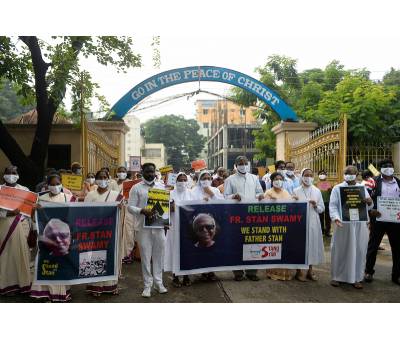 Dr. Stanislaus D’Souza SJ, the Jesuit Provincial of India, said: “With a deep sense of pain, anguish and hope we have surrendered Fr Stan Swamy, aged 84, to his eternal abode.”The funeral service and Mass was led by Father Arun De Souza, Jesuit provincial of Mumbai, at St. Peter’s Church in Bandra, a Mumbai suburb. Only some 20 people attended the service because of Covid-19 restrictions. Jesuits said the ashes will be carried to Ranchi town in eastern India where the missionary priest was based and to Jamshedpur town, the base of his Jesuit province. Father Stanislaus Arulswamy, known popularly as Stan Swamy had Parkinson’s disease, developed a pulmonary infection, post-Covid-19 complications in the lungs and pneumonia, according to the hospital’s medical director Ian D’Souza. India’s National Investigation Agency (NIA) that is tasked with fighting terrorism and sedition under the controversial Unlawful Activities (Prevention) Act (UAPA), arrested Father Swamy on October 8 from Bagaicha, a Jesuit social action center on the outskirts of Ranchi, the capital of the eastern state of Jharkhand.
Dr. Stanislaus D’Souza SJ, the Jesuit Provincial of India, said: “With a deep sense of pain, anguish and hope we have surrendered Fr Stan Swamy, aged 84, to his eternal abode.”The funeral service and Mass was led by Father Arun De Souza, Jesuit provincial of Mumbai, at St. Peter’s Church in Bandra, a Mumbai suburb. Only some 20 people attended the service because of Covid-19 restrictions. Jesuits said the ashes will be carried to Ranchi town in eastern India where the missionary priest was based and to Jamshedpur town, the base of his Jesuit province. Father Stanislaus Arulswamy, known popularly as Stan Swamy had Parkinson’s disease, developed a pulmonary infection, post-Covid-19 complications in the lungs and pneumonia, according to the hospital’s medical director Ian D’Souza. India’s National Investigation Agency (NIA) that is tasked with fighting terrorism and sedition under the controversial Unlawful Activities (Prevention) Act (UAPA), arrested Father Swamy on October 8 from Bagaicha, a Jesuit social action center on the outskirts of Ranchi, the capital of the eastern state of Jharkhand.
The following day, he was lodged in Taloja Jail, near Mumbai. He was arrested for alleged links with Maoist insurgents who were said to have been behind the caste-based violence in BhimaKoregaon village in Maharashtra state in January 2018, in which one person was killed and many others injured. Fifteen others, including scholars, lawyers, academicians, cultural activists and an ageing radical poet, have also been implicated in the same case. Father Swamy who suffered from Parkinson’s disease had difficulty in even sipping water from a glass and depended on co-prisoners for his other basic needs. Besides, he also had hearing impairment and other age-related ailments.
The NIA court denied him bail twice, forcing him to twice move the Bombay High Court for bail. In the second week of May, the priest’s family members sought his release on grounds that he had contracted Covid-19 and was unable to even speak to his lawyers. While hearing his bail plea on health grounds on May 21 through a video linkup, the Bombay High Court sensed Fr. Swamy’s failing health, and offered him treatment in a government or private hospital. But the Jesuit turned down the offer, saying all he wanted was bail to go back to his home. “I would rather suffer, possibly die very shortly if this were to go on,” he said. He explained that when he arrived at the prison, his bodily systems “were very functional”, but in the over 7 months in prison, “there has been a steady, slow regression” of his health.
JCSA said “the Bombay High Court was hearing some petitions, seeking bail and a constitutional challenge to a section of UAPA, on July 5 when his lawyer announced Stan Swamy’s death.” “He suffered a cardiac arrest at 4.30 am on Saturday, and deteriorated thereafter,” JCSA said. The Archdiocese of Ranchi where Father Swamy served hailed him as “a champion of tribal rights, a fighter for justice and a symbol of courage”. “The fact that this sick man suffering with Parkinson disease was arrested at the age of 84, refused bail for over 7 months, not even allowed a sipper and finally contracted COVID in jail, itself is a sad reflection on those who got the innocent man arrested and the courts that refused to give him bail,” said a statement signed by
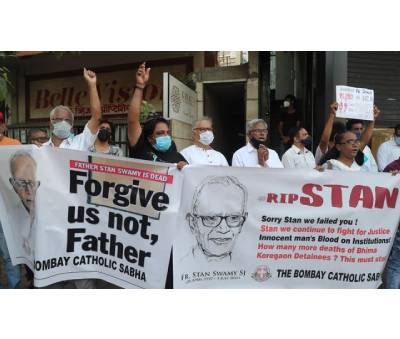 Archbishop Felix Toppo of Ranchi and Auxiliary Bishop Theodore Mascarenhas. “The ‘caged parrot’ now sings in heaven but its blood is on our hands,” they wrote, “May the hand of God intervene to bring justice to all innocent victims of insensitivity, vindictiveness and injustice. We have lost Fr. Stan Swamy but we still hope in the God of justice,” they added.The Jamshedpur Jesuit Province, to which Father Swamy belonged, also expressed “a deep sense of pain, anguish and hope” at the death of the “servant in mission of justice and reconciliation”. In a Facebook post, Father Jerome Cutinha noted that the “author of life” had given Father Swamy “a mission to work among the Advasis [indigenous], Dalits [downtrodden] and other marginalized communities so that the poor may have life and life to the full, with dignity and honour”. “The Society of Jesus [Jesuits], at this moment, recommits itself to take forward the legacy of Fr. Stan in hits mission of justice and reconciliation,” Father Cutinha wrote.
Archbishop Felix Toppo of Ranchi and Auxiliary Bishop Theodore Mascarenhas. “The ‘caged parrot’ now sings in heaven but its blood is on our hands,” they wrote, “May the hand of God intervene to bring justice to all innocent victims of insensitivity, vindictiveness and injustice. We have lost Fr. Stan Swamy but we still hope in the God of justice,” they added.The Jamshedpur Jesuit Province, to which Father Swamy belonged, also expressed “a deep sense of pain, anguish and hope” at the death of the “servant in mission of justice and reconciliation”. In a Facebook post, Father Jerome Cutinha noted that the “author of life” had given Father Swamy “a mission to work among the Advasis [indigenous], Dalits [downtrodden] and other marginalized communities so that the poor may have life and life to the full, with dignity and honour”. “The Society of Jesus [Jesuits], at this moment, recommits itself to take forward the legacy of Fr. Stan in hits mission of justice and reconciliation,” Father Cutinha wrote.
“We are deeply saddened at the passing away of Fr. Stan Swamy. We give thanks to God for Fr. Stan’s life and commitment to the poor indigenous people and their struggles,” wrote Cardinal Oswald Gracias of Bombay in a brief statement. “Fr. Stan’s arrest was very painful,” lamented the cardinal who is President of the Catholic Bishops’ Conference of India (CBCI). “Under the Indian criminal law, one is innocent until proved guilty,” he wrote. “Fr. Stan’s case did not even come up for hearing. We were eagerly waiting for the case to be taken up and the truth to come out,” the cardinal wrote.
Fr. Swamy’s commitment
Father Swamy has denied all charges against him saying BhimaKoregaon is “a place that I have never been to in all my life.” However, sensing his imminent arrest, he had released a video message explaining his situation. He said that what was happening to him was not something unique or happening to him alone. “It’s a broader process that is taking place over the country.” Prominent intellectuals, lawyers, writers, poets, activists and student leaders, he said, “are all put into jail just because they have expressed dissent…”.
This however did not dim his resolve to pursue his convictions. “I am happy to be part of this process because I am not a silent spectator,” he said in the video. He explained that with the creation of Jharkhand state in 2000, there were issues, such as displacement and land alienation because of mining, factories townships and dams”, in which the people who owned that land were not consulted. He engaged young activists to resort to the country rulings or laws that empowered the indigenous people in issues regarding their lands and territories.
The death in India of an octogenarian human rights activist who was denied bail even as his health deteriorated in prison has sparked anger across the country, with critics decrying the government’s alleged misuse of anti-terrorism laws. For decades, he fought for the human rights of India’s marginalized and indigenous groups, speaking and writing in depth about caste-based injustices.
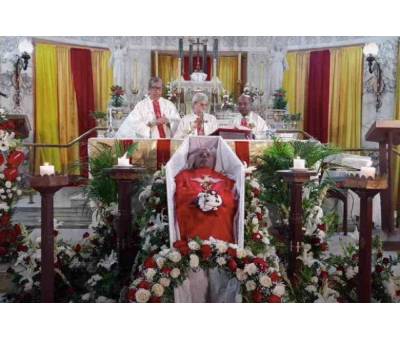 India’s caste system was officially abolished in 1950, but the 2,000-year-old social hierarchy imposed on people by birth still exists in many aspects of life. The caste system categorizes Hindus at birth, defining their place in society, what jobs they can do and who they can marry. In October last year, Swamy was arrested and charged under the country’s anti-terrorism laws, which critics have described as draconian.
India’s caste system was officially abolished in 1950, but the 2,000-year-old social hierarchy imposed on people by birth still exists in many aspects of life. The caste system categorizes Hindus at birth, defining their place in society, what jobs they can do and who they can marry. In October last year, Swamy was arrested and charged under the country’s anti-terrorism laws, which critics have described as draconian.
Stan Swamy was among 16 renowned activists, academics and lawyers who were charged under a draconian anti-terror law in what came to be known as the BhimaKoregaon case. Prison authorities were criticized for denying him access to basic amenities such as a straw and sipper – a plastic drinking beaker with a spout or straw – which he needed to drink water because of hand tremors caused by Parkinson’s. The Elgar Parishad case is related to inflammatory speeches made at a conclave held in Pune on December 31, 2017, which, the police claimed, triggered violence the next day near the Koregaon-Bhima war memorial located on the outskirts of the western Maharashtra city. The police had claimed the conclave was organized by people with alleged Maoist links.
Human Rights Violated: Modi Regime Abuses Power
Stan Swamy’s arrest sparked outrage worldwide, prompting several opposition politicians, national and international rights groups to demand his release. The others accused in the case termed Stan Swamy’s death an “institutional murder” and held the “negligent jails, indifferent courts and malicious investigating agencies” responsible for it. As a mark of protest, 10 of the co-accused in the case – Rona Wilson, SurendraGadling, SudhirDhawale, Mahesh Raut, Arun Ferreira, Vernon Gonsalves, GautamNavlakha, AnandTeltumbde, Ramesh Gaichor and SagarGorkhe – went on a one-day fast in the Taloja jail on Wednesday.
They informed about the protest to their family members, who released a statement saying all Elgar case prisoners have blamed the NIA and the Taloja jail’s former superintendent KaustubhKurlekar for the death of Father Stan Swamy. They believe that “the separation of Stan Swamy from them is a deliberate institutional murder,” the release said. The statement alleged that the NIA and Kurlekar never missed a single opportunity to “harass” Stan Swamy, whether it was the “ghastly treatment” inside the jail, the haste to transfer him back from hospital to jail or even protesting against trivial things like a sipper (which Stan Swamy required due to his medical conditions).
“It is these that have caused the death of Stan Swamy and therefore, for this institutional murder, NIA officials and Kurlekar should be tried under Section 302 (murder) of the Indian Penal Code,” the statement said, while demanding a judicial inquiry into his death.
The statement said the family members of the accused will submit these demands to Maharashtra Chief Minister Uddhav Thackeray through the Taloja jail administration. It also said that though these accused were lodged in different barracks, they met on Tuesday and shared their memories of Father Stan Swamy, and also observed a two-minute silence as a mark of tribute to him. Three women accused in the case- SudhaBharadwaj, Shoma Sen and JyotiJagtap – are currently lodged at the Byculla prison in Mumbai.
The United Nations Human Rights on Tuesday issued a statement on his death and detention, criticising India. The international body tweeted, “We are saddened and disturbed by the death of 84-year-old human rights defender Father Stan Swamy, after prolonged pre-trial detention. With Covid-19, it is even more urgent that states release every person detained without sufficient legal basis.” In its statement, the UN Human Rights’ office of the high commissioner had said that Father Stan had been held in pre-trial detention without bail since his arrest, charged with terrorism-related offences in relation to demonstrations that date back to 2018.
“High Commissioner Michelle Bachelet and the UN’s independent experts have repeatedly raised the cases of Father Stan and 15 other human rights defenders associated with the same events with the Government of India over the past three years and urged their release from pre-trial detention. The High Commissioner has also raised concerns over the use of the UAPA in relation to human rights defenders, a law Father Stan was challenging before the Indian courts days before he died,” the UN statement said. “We stress, once again, the High Commissioner’s call on the Government of India to ensure that no one is detained for exercising their fundamental rights to freedom of expression, of peaceful assembly and of association,” Bachelet said in her statement.
An international alliance of civil rights groups has blamed the administration of Prime Minister Narendra Modi for the death of an 84-year-old Jesuit social activist who died under detention. Human rights defender Father Stan Swamy’s death on July 5 while awaiting trial has deeply shocked and outraged global civil society alliance CIVICUS. A slew of opposition politicians, rights groups and academics, have expressed sadness for his death — as well as anger for the laws under which he was arrested and denied bail. Critics have long accused India’s government of increasingly using anti-terrorism laws as a means to quell any form of dissent.
Harsh Mander, a prominent Indian rights activist called Swamy’s death a “tragedy for the nation.” “A cruel state jailed him to silence his voice, the judiciary did nothing to secure his freedom,” he said on Twitter. International figures have spoken out as well — the European Union’s special representative for human rights said the EU had been “raising his case repeatedly with authorities,” calling Swamy a “defender of indigenous people’s rights.”
MeenakshiGanguly, South Asia director of Human Rights Watch, said Swamy’s arrest highlights “a degree of cruelty and callousness that is shameful.” “The counter terror law is draconian. We see it is being used rampantly to jail peaceful critics without bail,” Ganguly said. “It was for the courts to decide if Swamy was guilty, but in repeatedly stifling bail, the authorities chose not to protect,” the “fragile, ailing” activist, she added.
The priest’s death “is a result of the persecution he has faced by the Modi government after revealing abuses by the state,” the group said in a press statement. “Swamy’s death is a tragic loss for civil society and highlights the dangerous situation for other human rights defenders currently in jail in India,” said Lysa John, CIVICUS secretary-general. “Human rights activism and criticism of the state should not amount to the equivalent of a death sentence.”
Thousands of activists, political leaders and Indian citizens have taken to social media to pay tributes to Stan Swamy. Many also expressed anger at the way he was jailed during Covid-19 and repeatedly denied bail. The government said Swamy’s arrest followed “due process under law”. Historian Ramachandra Guha called his death “a case of judicial murder“. Leader of the main opposition Congress party Rahul Gandhi tweeted that “he deserved justice and humaneness”:
Indian American organizations have condemned the death of Father Stan Swamy, the 84-year-old defender of indigenous peoples’ rights in India, calling it a blot on India’s consciousness. “It is a dark day for democracy in India, and the national leadership and members of the judiciary should hang their heads in shame” questioning the failure of freedom of expression in a democratic nation,” George Abraham, vice-chairman of the Indian Overseas Congress, said in a statement.
In his last bail hearing in May, Swamy had predicted his death. “I would rather suffer, possibly die here very shortly if this were to go on,” he told the judges. The Indian Express newspaper said Swamy’s death had “left the highest institutions of India’s justice system diminished”.”In the nearly nine months of his incarceration, till his death, the ailing activist came up – again and again – against the heavy hand of the state, an unresponsive judiciary and a broken prison system,” the newspaper said in an editorial. Chief Minister Hemant Soren of the eastern state of Jharkhand – where Swamy lived and worked – said the federal government “should be answerable for absolute apathy and non provision of timely medical services, leading to his death”.

